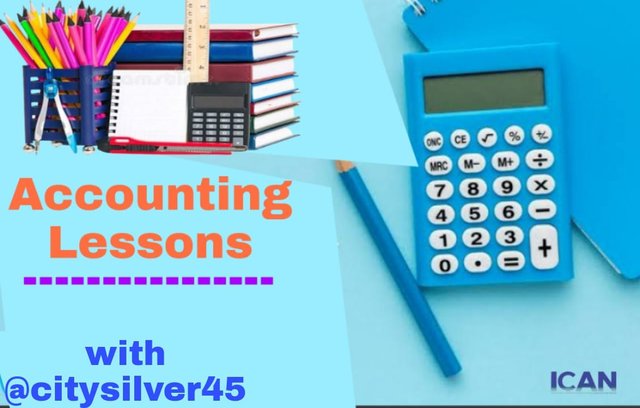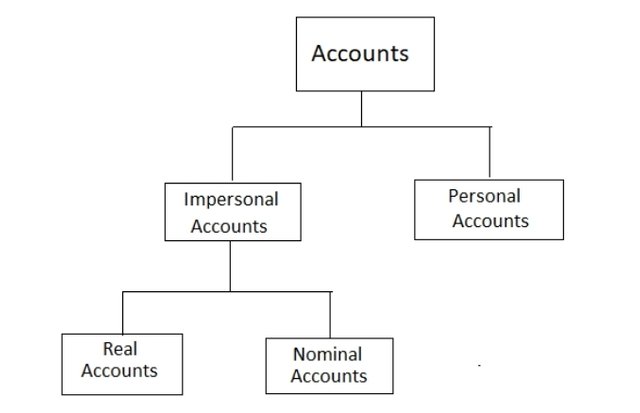 image designed in PicsArt
image designed in PicsArt
Introduction to Accounting
Contents:
• Over view of and historical background of
accounting
• Branches of Accounting
• Historical background of accounting
• Classification of Accounts
Over view of and historical background of accounting
Accounting can be defined as the process of collecting, recording, presenting, analyzing & interpreting financial information to the users of financial statements.
Accounting is one of the oldest professions in human history. It could also be describe as the process of consolidating financial information to make it clear and understandable for all stakeholders.
The main goal of accounting is to record and report a company’s financial transactions, financial performance, and cash flows
Branches of Accounting
Accounting is a broad field of study which is divided into different branches, some of which include;
• Financial accounting.
• Cost accounting.
• Auditing.
• Managerial accounting.
• Accounting information systems.
• Tax accounting.
• Forensic accounting.
• Fiduciary accounting
Historical background of accounting
The history of accounting can be traced back thousands of years to the ancient civilization in Mesopotamia and is said to have developed alongside writing, counting and money.
The early Egyptians and Babylonians created auditing systems, while the Romans collated detailed financial information.
The Italian Luca Pacioli, recognized as the father of accounting and bookkeeping was the first person to publish a work on double-entry bookkeeping, and introduced the field in Italy.
The recording of transactions in books of accounts in line with double entry principle dates back to the 14th century, when Italian merchants began to use the double-entry system to record their transactions.
The earliest known double entry records are the account of steward of the Commune of Genoa for the year 1340. An Italian monk, Luca Pacioli, published the first known text on double entry accounting in his book “Summa di Aritmetica Geometria Proportionalita” (meaning everything about Arithmetic, Geometry and Proportion) the book was published in 1494.
The modern profession of the chartered accountant originated in Scotland in the nineteenth century. Accountants often belonged to the same associations as solicitors, who often offered accounting services to their clients. Early modern accounting had similarities to today's forensic accounting.
Accounting began to transition into an organized profession in the nineteenth century, with local professional bodies in England merging to form the Institute of Chartered Accountants in England and Wales in 1880.
However, for the purpose of this lesson, we will concern ourselves more on financial accounting.
Classification of Accounts
There are two broad classifications of accounts.
These are personal accounts and impersonal accounts.
Personal Accounts
Personal accounts are the accounts that are used to record transactions relating to individual persons, firms, companies, or other organizations.
Examples of such accounts include an individual’s accounts (e.g., Mr. Zelensky), the accounts held by modern enterprises, and unity bank accounts.
Impersonal Accounts
Impersonal accounts are those that do not relate to persons. There are two types:
Real accounts (or permanent accounts)
Nominal accounts (or temporary accounts)
Real Accounts
Real accounts exist even after the end of accounting period. For the next accounting period, these accounts start with a non-zero balance, which is carried forward from the previous accounting period.
Examples of such accounts include machinery accounts, land accounts, furniture accounts, cash accounts, and accounts payable accounts.
Usually, real accounts are listed in the statement of financial position (balance sheet) of the business.
Nominal Accounts
Nominal Accounts are the accounts relating to the expenses, losses, incomes, and gains. Nominal accounts are closed at the end of the accounting period. For the next account period, these accounts start with a zero balance.
Normally, nominal accounts are used to accumulate income and expense data. In turn, these data can be used to prepare income statements or trading and profit and loss accounts. For this reason, nominal accounts are sometimes referred to as income statement accounts.
Examples of nominal accounts include sales, purchases, gains on asset sales, wages paid, and rent paid.
 pictorial representation of account types
pictorial representation of account types
Conclusion
Accounting is an interesting subject. It is also simple to understand. In our next class, we shall be looking into the books of accounts.
Thank you.
Thanks @citysilver45 for this wonderful tutorial. We appreciate your kindness towards the kids. We hope that they will join in this tutorial.
I invite our verified kids to come and read.
@ibtisamwaqas
@binwaqas
@kishwarsumbal
@bossj23
@madilyn02
@leyxi209
@geoscary21
@chukwu10
@dorismos
@favour11
@princeifeko
@yeri52
@katherine012
@fortwis09
@chimeroselam
@ghani12
@wizzyboy3
@deben
@tarazona14
@jlvillamizar
@joymm
@david-o
@jueco
@elyayo
Downvoting a post can decrease pending rewards and make it less visible. Common reasons:
Submit
very informative.
Downvoting a post can decrease pending rewards and make it less visible. Common reasons:
Submit
Thank you. Our hope is that the lessons will be useful and helpful to the kids, especially those once aspiring to become professional in the field
Downvoting a post can decrease pending rewards and make it less visible. Common reasons:
Submit
We hope so too. Thanks
Downvoting a post can decrease pending rewards and make it less visible. Common reasons:
Submit
Its nice to read such an informative article
Downvoting a post can decrease pending rewards and make it less visible. Common reasons:
Submit
Thank you dear
Downvoting a post can decrease pending rewards and make it less visible. Common reasons:
Submit
Learning never ends and no knowledge is a waste, I might not be an account student but I learnt a lot here.
Downvoting a post can decrease pending rewards and make it less visible. Common reasons:
Submit
Yes @david-o, accounting is a very interesting field.
You will become interested as you read our lessons.
Downvoting a post can decrease pending rewards and make it less visible. Common reasons:
Submit
Nice topic and nice lecture I have learned something from this topic keep it
Downvoting a post can decrease pending rewards and make it less visible. Common reasons:
Submit
Whether you're a seasoned number-cruncher or a newbie in the world of debits and credits, this course is a fundamental building block for understanding the financial side of any business.
As you wade through the ins and outs of accounting, you might encounter moments when you wish for a guiding hand or a trusted source of expertise. That's where the Leicester accountants come into the picture. They're like your financial compass, ready to help you navigate the complex world of numbers and financial statements.
Downvoting a post can decrease pending rewards and make it less visible. Common reasons:
Submit
Hello! Many companies face stress when it comes to bookkeeping, and Bookkeeper360 is here to help. No matter what industry a business is in, its people and software can benefit everyone. For those interested in such services, it will be useful to contact Bookkeeper360 customer service whose experienced staff will try to understand all the client’s needs and offer a solution that suits him.
Downvoting a post can decrease pending rewards and make it less visible. Common reasons:
Submit